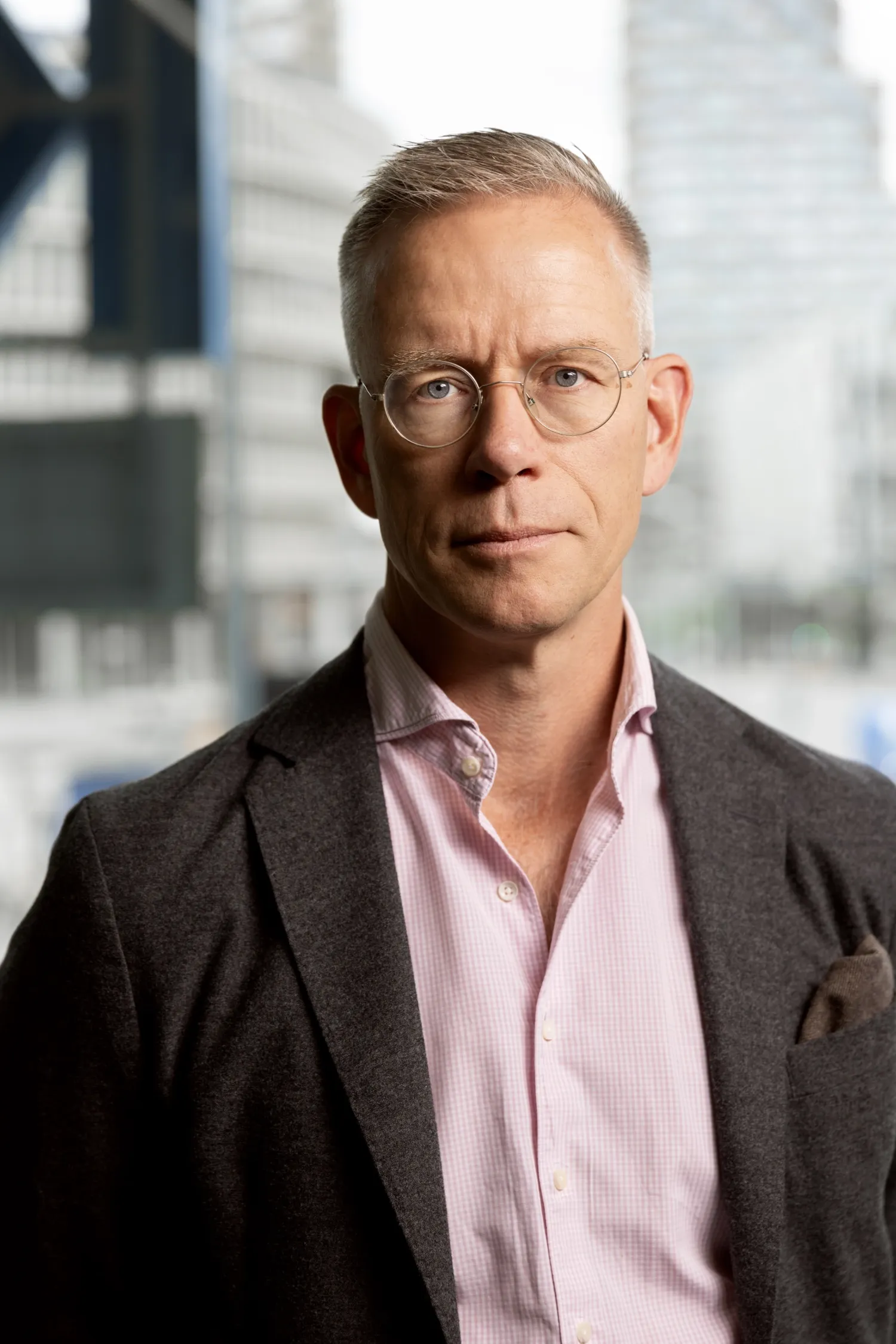Prostate cancer accounts for more male deaths in Sweden than any other form of cancer. However, how the disease progresses and how fatal it is depend on the type of tumour. Olof Akre hopes to find better prognostic indicators that will help to personalise treatment. Meet one of the new professors of Karolinska Institutet who will participate in this year's installation ceremony at Aula Medica on 3 October.
Text: Karin Tideström, for KI's installation ceremony booklet 2024
What are you researching?
"I'm running clinical studies of cancer with a focus on prostate cancer. We're doing a large epidemiological study in an attempt to find better prognostic indicators during diagnosis so that we can adapt therapies to the individual risk of developing symptoms and dying from the disease. In another randomised study, we're comparing surgery with radiotherapy and hormone therapy. We've also been looking at whether robotic surgery is better than open surgery for prostate cancer and studying post-operative complications and arterial and venous blood clots."

Why is this important?
"Prostate cancer is the most common form of cancer in Sweden and the one that kills most men. Many of the patients who are diagnosed have a slow-growing tumour and do not actually require active treatment. Current treatments tend to have lasting side effects, such as a deterioration of life quality. We therefore want to only treat patients who are in danger of developing severe symptoms. We also, of course, want to choose the right treatment and there is often a lack of strong scientific support to show which treatment would be best."
What are your main findings to date?
"Many of our studies are ongoing and haven't produced any results yet, but in the studies in which we've compared different techniques, we've been able to establish that robotic surgery, when the growth pattern of the tumour allows it, is preferable to open surgery when it comes to totally removing the cancer and avoiding certain adverse reactions. We've also been able to show that the risk of venous blood clots is higher in the first three months after cancer surgery, while the risk of cardiovascular disease and stroke after surgery is nothing like as elevated."
About Olof Akre
Professor of Oncological Surgery at the Department of Molecular Medicine and Surgery
Olof Akre was born in 1972 in the town of Torsby in Värmland. He graduated in medicine at Uppsala University in 1999, earning his PhD in the same year at Karolinska Institutet. In 2012 he became a qualified urologist and has been adjunct professor of urology at Karolinska Institutet since 2016. In 2019 he became head of Theme Cancer at Karolinska University Hospital, where he was made director of Research, Education and Development in 2024. Olof Akre was appointed Professor of Oncological Surgery at Karolinska Institutet on 1 November 2023.






